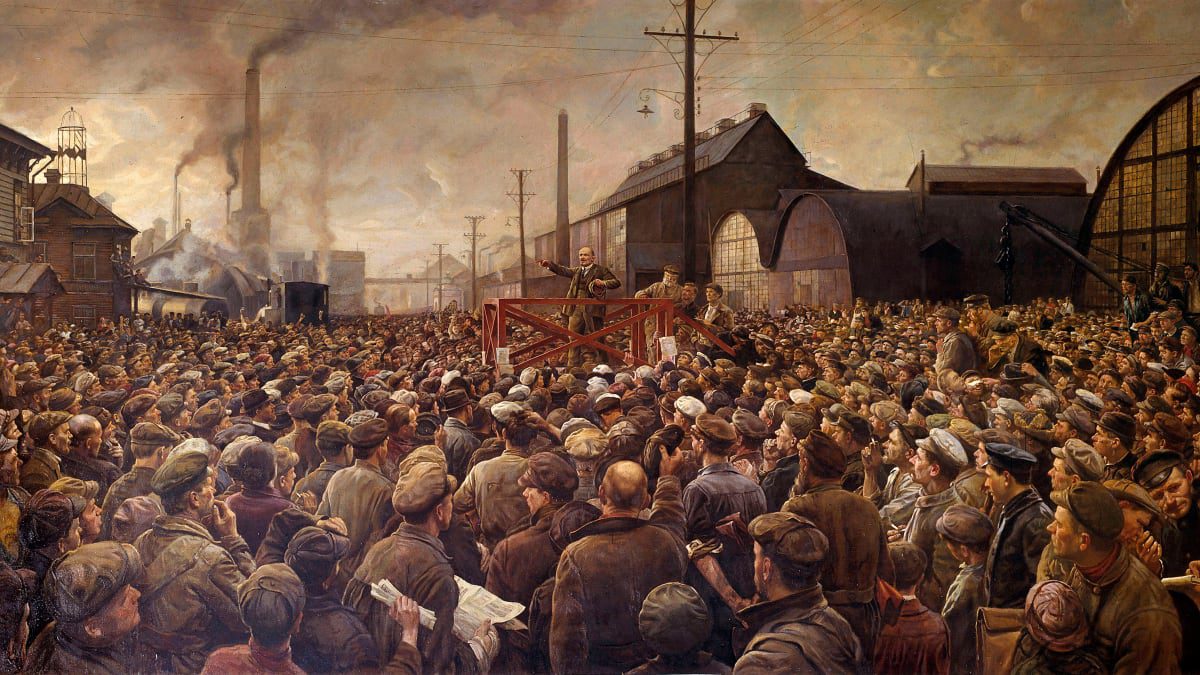The French and Russian Revolutions both resulted in a new system of government, but there were significant differences between the two upheavals. The causes of the French Revolution were rooted in the social and economic conditions of pre-revolutionary France, while the Russian Revolution had multiple causes, including economic, social, and political factors. The French Revolution was characterized by violence and radical change, while the Russian Revolution was marked by consolidation and the implementation of social and economic reforms. The French Revolution paved the way for modern democracy, the rule of law, and the concept of human rights, while the Russian Revolution led to the spread of communism and shaped the course of the Cold War.
The French Revolution vs. the Russian Revolution: Comparing Two Great Acts of Political Upheaval
Introduction
The French and Russian Revolutions were two of the most significant political upheavals in history. They both resulted in the overthrow of an existing political order and the emergence of a new system of government. However, there were significant differences between the two revolutions, not only in their causes and outcomes but also in their character and impact on the world. In this article, we will compare and contrast the French and Russian Revolutions, highlighting the similarities and differences between the two great acts of political upheaval.
Causes of the Revolutions
The causes of the French Revolution were rooted in the social and economic conditions of pre-revolutionary France. The country was ruled by a monarchy that was seen as corrupt, inept, and out of touch with the needs of the people. The French people were oppressed, impoverished, and disillusioned with their rulers. The Revolution began in 1789 with the storming of the Bastille, a symbol of royal tyranny, and quickly spread throughout the country.
The Russian Revolution, on the other hand, had multiple causes, including economic, social, and political factors. Like France, Russia was ruled by an autocratic monarchy that was seen as oppressive and out of touch. The country was beset by economic problems, with peasants suffering from poverty and hardship. The Revolution began in 1917, sparked by a series of events, including the failure of the First World War, popular discontent, and the abdication of the Tsar.
The Course of the Revolutions
The French and Russian Revolutions followed different paths. The French Revolution was characterized by a series of radical changes, including the abolition of the monarchy, the establishment of a republic, and the Reign of Terror. The Revolution was marked by violence, including the execution of the King and Queen and thousands of other perceived enemies of the Revolution.
The Russian Revolution also saw radical changes, with the overthrow of the Tsar and the establishment of a socialist state. However, the Revolution was not marked by the same level of violence as the French Revolution. Instead, the Bolsheviks consolidated their power and established a one-party state. They also implemented far-reaching social and economic reforms, including the nationalization of industry and land.
The Legacy of the Revolutions
The French and Russian Revolutions had a significant impact on the world. The French Revolution paved the way for the emergence of modern democracy, the rule of law, and the concept of human rights. It also had an impact on the development of nationalism and the spread of revolutionary ideas.
The Russian Revolution, meanwhile, had a significant impact on the course of the 20th century. The establishment of the Soviet Union led to the spread of communism throughout the world, which had a profound impact on global politics, culture, and society. It also played a key role in shaping the course of the Cold War.
Conclusion
In conclusion, the French and Russian Revolutions were two great acts of political upheaval that had a profound impact on the world. While they had some similarities, including their roots in social and economic discontent and their aim of overthrowing a ruling elite, they were also marked by significant differences. The French Revolution was characterized by violence and radical change, while the Russian Revolution was marked by consolidation and the implementation of social and economic reforms. Ultimately, both revolutions left a lasting legacy, shaping the course of history in their respective ways.
